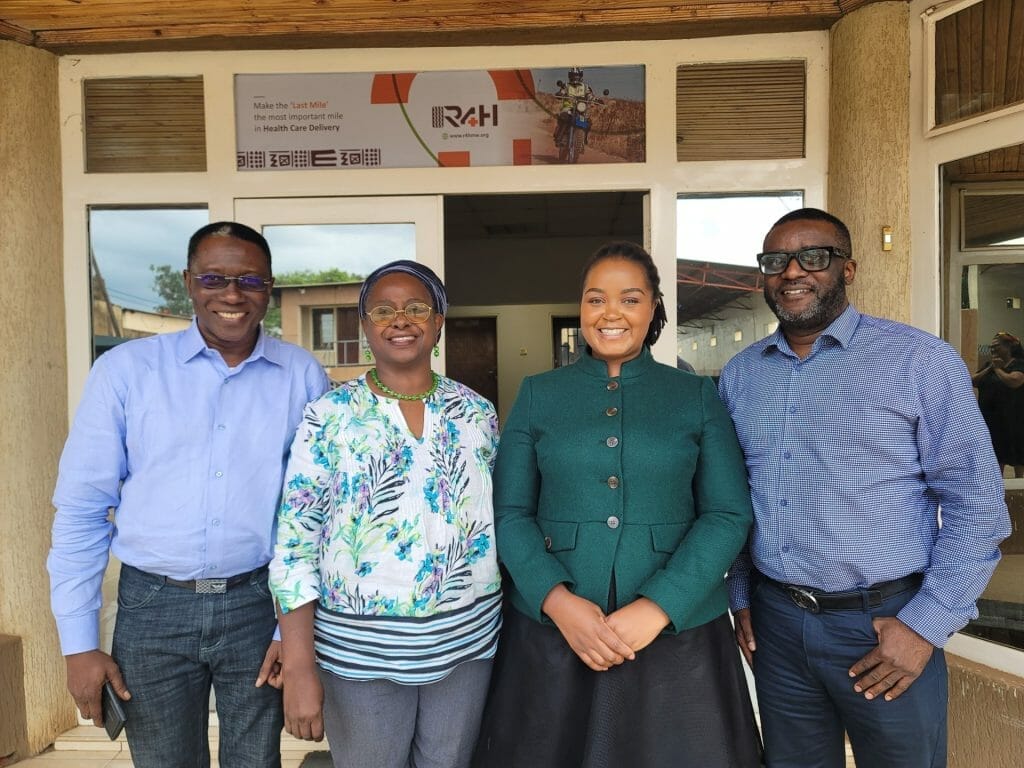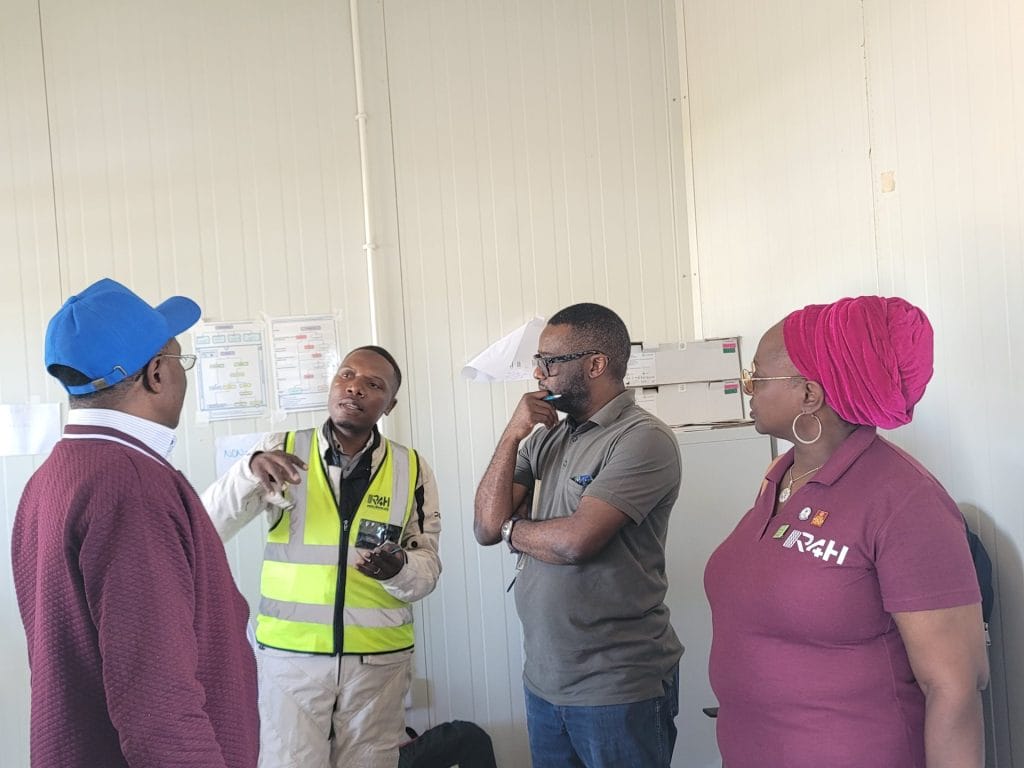Kayode Ajayi, who is both Riders for Health International CEO and country director of Riders Nigeria, was joined in Malawi by Adetola Olaniun, Riders Nigeria programme director.
Having not visited R4H Malawi since the pandemic, they were eager to learn the latest from Malawi including recent expansion and innovations in the programme.
The visit kicked off in the capital, Lilongwe with an address by the R4H management team followed by a demonstration of the programme’s sample transport services.
The history of sample transport in Malawi
Sample transport is one of the core services that Riders for Health has developed and offers. Riders is unique in providing a sample transport service that includes appropriate motorcycles that are regularly maintained, supplied with fuel and with full rider training.

Mphatso Kachule and Dr Stella Kasirye, from R4H Malawi leadership team with Kayode Ajayi and Adetola Olaniun at R4H office in Lilongwe
The Riders system means ministries of health and other health focused organisations have a reliable way of collecting biological samples from health centres, transporting them to labs, and then returning the test results to the health centres. Because of this diseases can be diagnosed quickly and treatment, when needed, can start swiftly.
The sample transport service provided by R4H in Malawi is Riders’ most comprehensive. Having started in 2011 with under 10 bikes, it has recently been scaled to cover private clinics and now reaches 790 health facilities and all of the nation’s 29 districts including the notoriously hard-to-reach Likomo Island in the middle of Lake Malawi.
Optimised Sample Transport (OST)
The visitors were shown the Optimised Sample Transport (OST) which has recently been introduced in Malawi, the only Riders programme that operates this enhanced system.
Sample transport courier, Prince Kasambala showed how he and other R4H couriers ensure that the samples collected at health facilities match with the results collected from district molecular laboratories. He also showed the level of detail included in the daily reports which provide useful insights into how the system is functioning.
On the second day of the visit, the visitors were taken to Bwaila and the Area 25 health centres, highly populated areas of the capital, Lilongwe.
Sample couriers also demonstrated their training in the careful handling of samples, which is essential to ensuring that the best possible samples are delivered to the laboratory for testing.

Prince Kasambala, R4H STP Courier briefing Riders Nigeria visitors on Riders’ Malawi couriers’ daily routine at Area 25 Health Centre
Thoko Nsema, the head lab technician at Area 25 Health Centre explained the process involved in sample testing, handling and recording from data entry to printing of results.
Throughout the visit Ajay and Adetola were impressed with the implementation of the new system, and the level of collaboration between R4H, health centres and the Malawi Ministry of Health. They also admired the team spirit and professionalism shown by the Malawi team and the programme’s corporate governance structure.
Riders for Heath’s aim is to continue to innovate and grow. And the hope is that recent developments in the Malawi programme will be adapted to suit the needs of other Riders programmes and used to strengthen Riders for Health’s transport for healthcare programmes across Africa.
